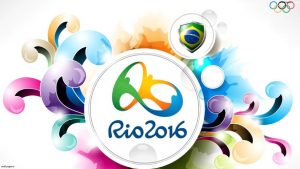By Sarah-Claire Jordan
 The Olympic Games, or simply the Olympics, as they are usually called in English, are huge international sporting events that happen every two years (with winter games every 4 years, and summer games every 4 years). They are an excellent example of events whose sole purpose is to bring countries together that might not come together otherwise.
The Olympic Games, or simply the Olympics, as they are usually called in English, are huge international sporting events that happen every two years (with winter games every 4 years, and summer games every 4 years). They are an excellent example of events whose sole purpose is to bring countries together that might not come together otherwise.
Translators also recognize the Olympics as an opportunity to work three times as much, and for a good cause. Breaking down language barriers is no easy task, especially considering over 200 different nations have participated in the summer games alone since their modern revival.
However, there must be some sort of standard in place to figure out exactly how to manage the myriad languages spoken during the games. There are three official Olympic languages: French, English, and whatever the official language of the host country is. If the host country’s official language happens to be either French or English, then there are only two official languages used.
But how was this decided? There are many different facts that seem to point towards the answer. First of all, the founder of the IOC (International Olympic Committee), Baron Pierre de Coubertin, was French. The IOC itself has its headquarters in the French-speaking part of Switzerland known as Lausanne. Along with that, we have the fact that an English-speaking American broadcasting company, NBC, has held the rights to broadcasting the games in the U.S. since the late 80’s.
Oddly enough, none of those are the true reasons for the French/English/host country’s language policy. It is actually quite logical and fair: the IOC looks at the countries that are eligible and looks at the languages spoken there. A tally is done, and every time, English comes up as the most common language, followed by French.
This explains why Chinese, Hindi, and Spanish are only official Olympic languages if they are the official language of a host country. It isn’t about which language has the most speakers in the world, it is about which languages are the most common among the countries that will be participating in the games. Beyond that, translators and interpreters still have a great deal of work for them to do.
For this year’s summer games, French has an even more important role in the Olympics. It has been declared the official language of the 2016 Summer Olympics as a way to honor the victims of the Paris attacks. This is extremely important as, besides the Zika virus, terrorism is a real and present threat. The Olympics is such a huge international event that it makes sense it would be a target.
To spread this awareness and pay respects to those who died in the Paris attacks, French will take on an even deeper meaning as it is used in the opening and closing ceremonies as well as being spoken by Francophones participating or watching. The French-speaking community in Brazil has already been visited by the IOC-appointed French language ambassador for this summer’s games, Manu Dibango of Cameroon.




